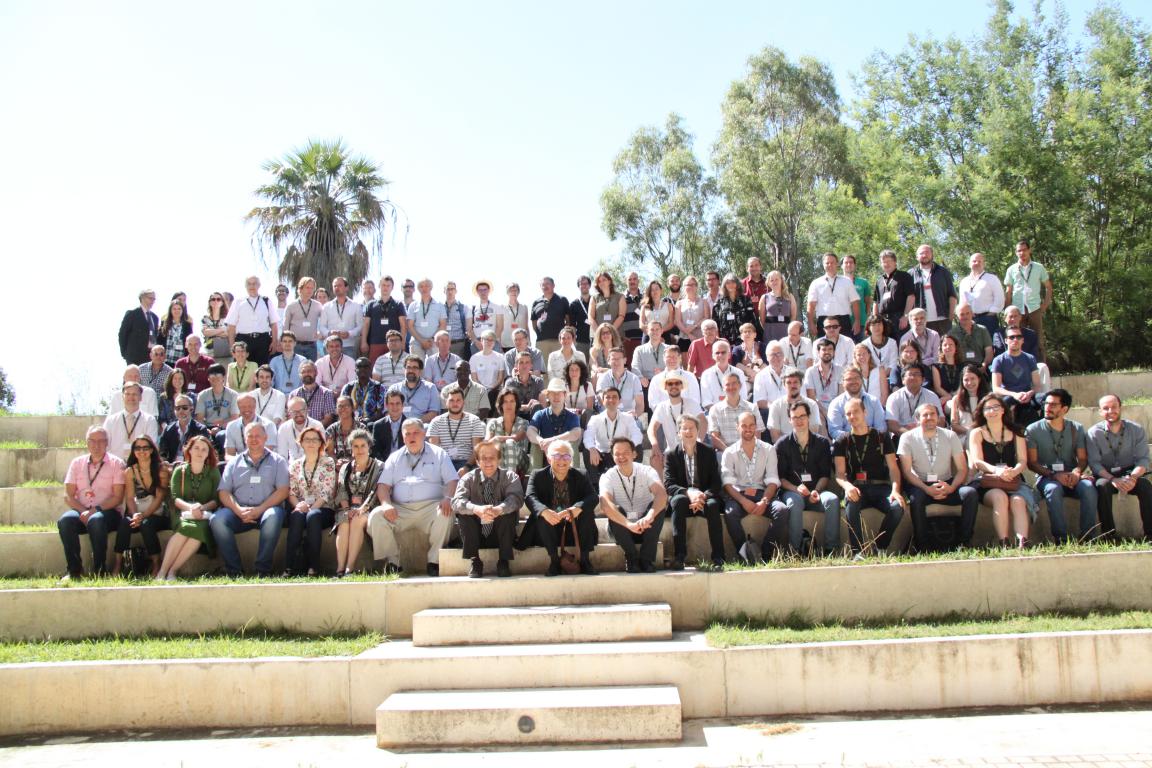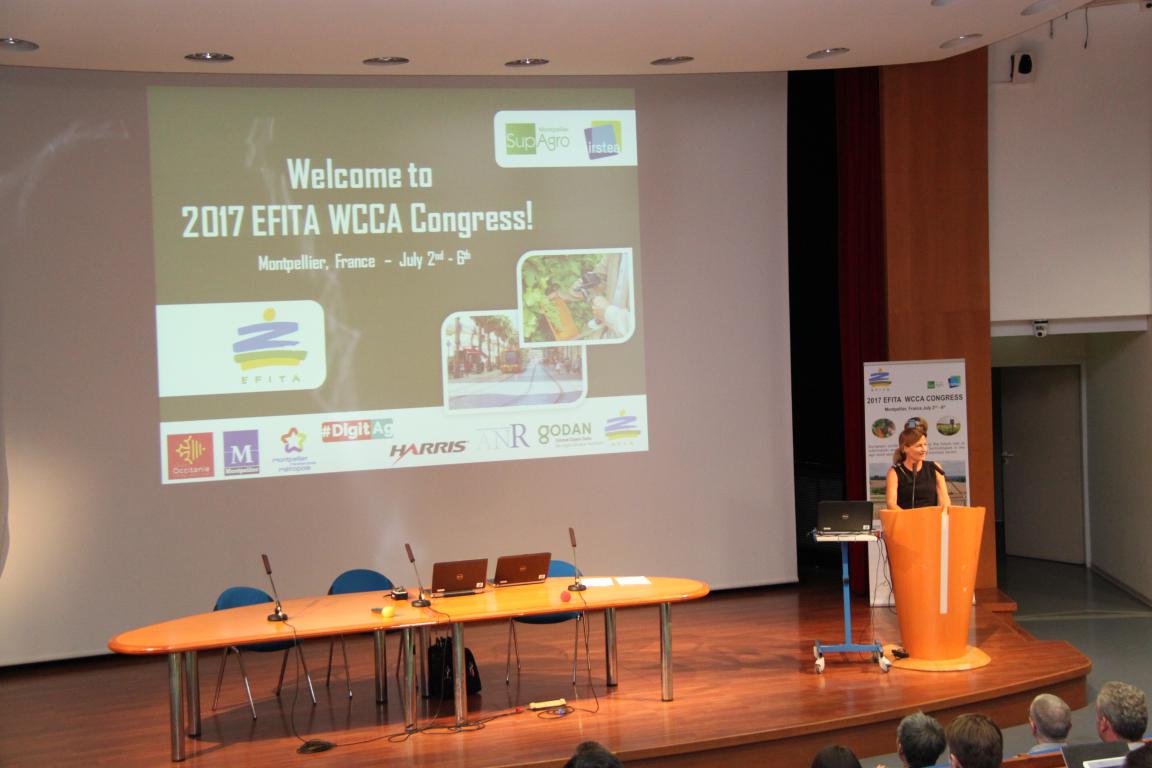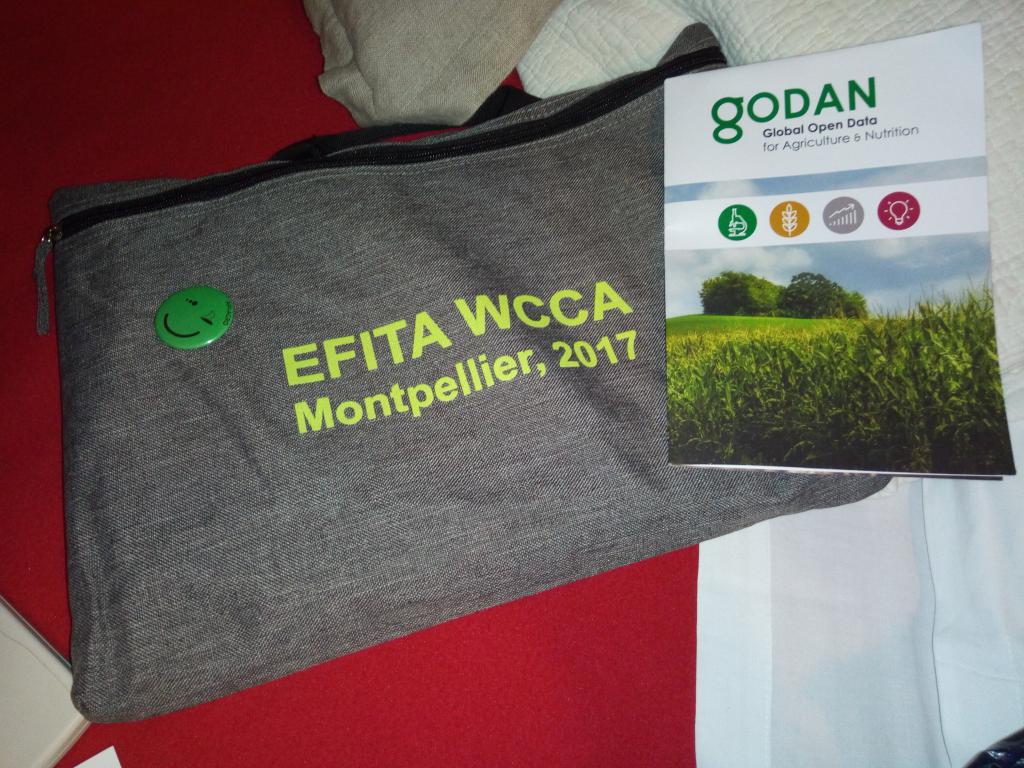-
About
- Our Work
- Get Involved
- Stay Updated
The future of ICT in the agri-food sector my EFITA conference experience
 European Federation for Information Technology in Agriculture, Food and the Environment (EFITA) is the European conference dedicated to the future use of ICT in the agri-food sector, bioresource and biomass sector, the conference issupported by the collaboration of the World Congress on Computers in Agriculture (WCCA). The first EFITA was held in 1997, and the recent one held on July 2nd to 6th 2017 was the 11th of the series in Supagro School, Montpellier, France. The conference had over 150 participants from around 25 countries. It was a nice atmosphere for knowledge sharing and thinking the future of ICT technologies within the agri-food and bioresource sectors. The conference had ICT demonstrations, poster presentations, plenary sessions, breakout sessions in different topical areas (Remote sensing/robotics, ICT Farm management, online classroom learning, Data Simulation, food chain, Agric Web, field to food and lots more) BtoB speed dating meetings, special sessions and technical tour to ICT in agriculture and territory management facilities.
European Federation for Information Technology in Agriculture, Food and the Environment (EFITA) is the European conference dedicated to the future use of ICT in the agri-food sector, bioresource and biomass sector, the conference issupported by the collaboration of the World Congress on Computers in Agriculture (WCCA). The first EFITA was held in 1997, and the recent one held on July 2nd to 6th 2017 was the 11th of the series in Supagro School, Montpellier, France. The conference had over 150 participants from around 25 countries. It was a nice atmosphere for knowledge sharing and thinking the future of ICT technologies within the agri-food and bioresource sectors. The conference had ICT demonstrations, poster presentations, plenary sessions, breakout sessions in different topical areas (Remote sensing/robotics, ICT Farm management, online classroom learning, Data Simulation, food chain, Agric Web, field to food and lots more) BtoB speed dating meetings, special sessions and technical tour to ICT in agriculture and territory management facilities.Here I share with you some of the highlights of what I learnt from the plenary panel session on data and open data in agriculture. It is high time we create an open and unrestricted access to data on agriculture. Too much agricultural data is available but it is not used or captured properly. We have instances where farmers will like to keep their data secret but they will want to rely on other peoples data.
Mutual exchange of data should be encouraged and the fact remains that data belongs to the farmer. If we make data more open, the issue of quality will be addressed through evaluation and peer review.
 Conference panel session
Conference panel session- Esteban Feuerstein: CEO at Sadosky Foundation Associate Professor and Researcher at University of Buenos Aires Argentina
- Johannes Keizer: Member of the GODAN secretariat and responsible for strategic Partnerships, former FAOs representative Italy
- Bruno Prépin: Director at AGRO-EDI Europe France
- Agnès Robin: Researcher and professor at University of Montpellier Intellectual propertys specialist France
- Bernhard Schmitz: Commercial Manager EME, AGCO International GmbH Germany
- Mehdi Siné : CTO & CDO at API-AGRO, ACTA and Arvalis Institut du Végétal France.
The success stories of some agricultural apps and data management projects was discussed during the breakout sessions. KoBoCollect an agricultural app which is based on the OpenDataKit and is used for primary data collection in humanitarian emergencies and other challenging field environments. The experience in using radio and SMS in providing market information updates in Malagasy was shared with issues related to perception and use of existing communication channel came to place. Enabling the Business of Agriculture program of the World Bank role was also explained by its representative Marina Kayumova on how they have been working on ensuring smart regulations in the ICT sector and improved connectivity to rural areas which will lead to sustainable agricultural development. Its better not to over-regulate and not under-regulate at the same time. The FAO e-agriculture representative Sophie Treinen talked about the importance of the e-agriculture policy and the need for all stakeholders to be actively involved in the process. The triple divide should always be considered in the e-agriculture activities which are digital, rural and gender factors.

I also had the opportunity to have a speed dating BtoField meeting with eight great agricultural innovators and it was a great time with them. I had a good time with E-Tumba team which is an ICT for Agric start up project which creates an advanced and intelligent Decision Support Platform to generate and disseminate information via mobile phones. My interaction with the World Bank operation analyst gave me a clearer understanding of the Enabling the Business of Agriculture of the Bank. It was an intellectual discussion with Anderson Sven a creative UX designer, Palsson Arvid a consultant on Agric mobile applications, Theabault Aurelie an ICT research and development expect in agronomic interface, Mihaly Csoto a research fellow and sociologist from Digital Culture and Technology Center, Obuda University and Sorensen Rene a research assistance from Aarhus University.
My Details
Ireti Emmanuel Adesida Ph.D. Researcher in the area of Agricultural Communication and Policy, Czech University of Life Sciences, Prague. Team leader/Program Coordinator-Rhealyz Green Network.
Conference funding support came courtesy of the Federal Government of Nigeria, NEEDS Assessment Grant through the Federal University of Technogy, Akure, Nigeria. I also a lecturer in the same University.
Picture credit: Picture 1 and 2 EFITA, picture 3 Ireti Emmanuel Adesida
About the author
Related Posts
Comments
No comments made yet. Be the first to submit a commentBy accepting you will be accessing a service provided by a third-party external to https://archive.ypard.net/
Get in touch
Email: [email protected]
YPARD Global Coordination UnitHosted by AGRIDEA and the Czech University of Life Sciences Prague
Lausanne, Switzerland and Prague, Czech Republic - Our Work

